After the Crash: Five Things to Do
Of course it's not going to happen to you, but in case it does...
Well, it’s not going to happen to me, because I’m so skilled and experienced, but it does happen to people I know on a regular-enough basis that I sometimes wonder what the actual odds really are of me being next to crash a motorcycle? The longer you ride, the more that old saying about there being two kinds of riders applies: those who’ve crashed and those who are going to crash. Most of us of a certain age fall into both categories. As with all of life’s inevitable calamities, of which we seem to have even more than usual lately (fires, floods, pandemics, armed assaults…) it really pays to plan ahead – even if the plan is just to be aware of how best to react in the immediate aftermath. Some things that seem obvious in hindsight aren’t always that way in real time. Here are five things to keep in mind in the hope that being aware of them will be like always carrying a tire repair kit and, therefore, never getting a flat.
1. Get out of harm’s way
If you’ve suffered a hearty whack or long tumble, and are fortunate enough to come to rest not in a traffic lane or a swiftly flowing river or a tiger enclosure, congratulate yourself and relax for a sec. Just don’t move after you come to rest. The natural reaction is to jump up and say “I’m fine!” Resist that. Lay there. Wiggle your fingers and toes before you do anything else. If your extremities are all working and reporting in, that’s a good thing. Move on to your elbows, ankles, knees, neck – and if they’re all working, then you can sit up and assess the situation. If you feel like you just woke up, that’s because you were knocked out and probably suffered a concussion. Don’t jump up onto your feet until your head is clear, and then slowly.
If you come to rest in traffic, you won’t have quite so much leisure time. You’ll want to get off the road as quickly as you can, and this will be the time, especially if it’s dark, that you realize that the guys in the hi-viz vests and reflective stripes aren’t such geeks after all. Do NOT attempt to pick up your motorcycle, but if it is dark and no cars are coming, hit the Hazard lights button if your bike has them, or a turn signal, as you crabwalk to safety. Once out of traffic, take a minute to assess your personal situation. If it is “Not Good” and you’re alone, hope you’re in cell range, dial 911, lie on your back and elevate your feet if you can.
If it’s “I seem to be okay,” then you can wobble upstream, on the shoulder, and alert the first car to come along so it won’t run over your bike. If you were in traffic when you crashed, probably a few cars have already stopped, if not the entire freeway. Even in our current societal condition, it’s amazing how well most people behave and pitch in in an emergency.
2. Keep an eye on yourself for a few minutes.
Adrenaline is a great cover-upper of injury, and is coursing through your veins. As it wears off and your heartbeat slows back down to normal, know the signs of shock: Clammy skin, rapid pulse and breathing, nausea, weakness or fatigue, dizziness, anxiousness, or agitation. If you’re feeling any kind of weird, just lie down, elevate your feet, and let other people deal with the rest of it for now.
If you’re alone, you’ve already called 911 or activated your Spot tracker if you’re out of range (see “Things to Do Before You Crash” when we get around to writing it, this will be in there). Now is the time to check yourself for leaks. If bleeding heavily from a leg or foot, God forbid, hopefully you’ve got two hands free to fashion a tourniquet with a belt, bandana or other piece of clothing. Lie still with your feet up, find religion, and try to keep yourself warm until help arrives. To stop bleeding from smaller wounds, apply direct pressure.
3. Find somebody to blame
If you’re able to get up and walk around with a clear head, thank your deity of choice and get to work. If your crash was your own damn fault and you know it, and you’re sure you’re unhurt enough to ride thanks to your protective gear and dumb luck, it’s time to pick your bike up when it’s safe to do so, roll it to the shoulder and assess the damage. Don’t be in a hurry. If everything’s operable including your body, and your bike’s not leaking oil or coolant, again thank your deity and welcome to the club.
State laws vary: In California, you’re required to file an accident report with the police or CHP in any accident resulting in injury or death within 24 hours, and with the Department of Motor Vehicles within ten days if the accident involves injury, death or more than $1,000 in property damage. So, if you crashed an expensive bike, have full coverage, and want your insurance to pay for repairs, you’ll need to confess to the DMV first. For lots of people, it’s often wiser to bypass officialdom’s embarrassing and possibly incriminating questions and citations, and fix your bike out of pocket. If nobody’s hurt, you have ten days to decide.
If somebody else caused your crash, it gets complicated. Leave your poor motorcycle where it came to rest, and wait for the police to arrive and fill out an accident report. (Unless you have outstanding warrants or the bike is stolen. In that case, flee the scene, preferably in waterways to throw off the hounds.)
If the vehicle or thing that caused your crash was nice enough to hang around, it’s not the time to seek vengeance, but it is the time to whip out your phone and take pictures of them, their vehicle (including fresh swatches of your bike paint if applicable), and license plate, and if there are any witnesses ask them for their contact information; a quick snap of their driver’s license is ideal, and if they’re not willing to do that, get pics of them and their vehicle including license plate. It may take the authorities a while to show up, and your witnesses may wander away. Be sure you’re able to track them down.
If your luck continues, the person who crashed you will be an attractive responsible type who’ll apologize profusely, ask if you’re sure you’re okay, and admit blame. Again with the smartphone: Hit “Record” if possible, because even nice people are known to change their memories when large sums of money are involved.
It’s customary to respond to nice people with niceness, and say things like “Well, I may have been partly to blame as I was adjusting my Infotainment system,” and “Don’t worry, I’m completely unhurt, and that’s all that matters,” and other pleasant inanities. Do NOT do it. Do not admit any sort of blame, and you can’t possibly know if you’re completely uninjured or not for days. In California, you have a year to file an injury claim after a suit is filed. Our friend Steve Natt says, “I got hit in 2015 and tbh I am STILL not a good judge of my condition…”
Many times, the person who hits you will be of questionable character. Our friend from the Great White North, Trevor Franklin, writes: “Six weeks ago today, I was hit by a Ford F150 on one of my motorcycles at a 4-way stop. He ran the stop sign. Then lied to police on the scene telling them we both stopped and went at the same time. And his wife in the passenger seat at the time confirmed his story. He told them this as I was being taken away in an ambulance. The first thing I did was try to get up… I couldn’t, then I took my helmet off because I couldn’t breathe.
“I spent the next 11 days in the hospital with a collapsed lung, 14 broken ribs, a fractured hip (with 3 screws in it now), broken collarbone and a fractured finger. I still can’t sleep in my own bed because I have to sleep sitting up. But guess what? My teen-aged son went to the scene the next day and discovered a used car lot on the corner had cameras outside… we got full video of the accident… not only did he blow the stop sign, but he never applied any brakes until he hit me and the cops now say he was speeding!”
Good call on the video cameras, if your crash happens someplace where there might be one!
4. Get Representation
In any scenario other than the solo crash where you pick yourself up and ride on in shame, blaming no one but yourself, it behooves you to immediately seek out a good Personal Injury Attorney whether you’re hurt or not, and no this article isn’t sponsored by any of them. In fact, our friends who have been innocent victims in more than one accident make it a point to have their PIA’s number in their contacts at all times, and that’s the first call they’ll make. The conventional wisdom is that you should call your insurance company immediately, but “immediately” depends on your policy. Usually 24 or 72 hours. If you already have a PIA, they can contact your insurance company for you. The less personal contact with your insurer, the better. If you tell them “I’m fine,” they will remember.
While your insurance company’s primary mission is to retain as much of the insurance company’s funds as possible, your PIA’s mission is to get the best settlement for you, which happily aligns with getting the biggest fee for themselves, wherever the money comes from. In a perfect world, that would be from the insurance of the person who caused your crash, which might well be the same insurance company as yours. It gets complicated, and you’ve got better things to do.
Especially if you’re injured, especially if the person who hit you was un- or under-insured (usually), negotiating with insurance companies without a good Personal Injury Attorney in the modern world is like trying to do your own dental work. Extracting money from insurance companies and assorted deadbeats and cheapskates is what PIAs do all day. Scrupulous ones will never advise you to feign injury, but even if you’re a tough guy, pain and suffering is a real legal thing. So is downtime, loss of income, and plenty of other things you’re legally entitled to but very likely won’t get without professional legal representation. Riderzlaw is not sponsoring this content and we are not endorsing them, but they do have an excellent motorcycle crash FAQ here.
As for finding a good personal injury attorney, one of the best things about social media is learning how many of your friends have been through the same thing, and have great advice and suggestions. And no, you shouldn’t have to pay your PIA a dime. The guilty party’s insurer is also responsible for your legal representation.
5. Learn from your crash, fix your bike right, and get back out there
Every self-aware long-time motorcyclist will tell you that they learn something with every crash and near-crash (except if it’s off-road, where crashes are nearly always a mystery), and that there was usually at least a little contributory negligence on their part that enabled the get-off. Riding while distracted. Riding while sleepy. Riding with a dark shield at dusk and failing to see that diesel spill or rock. Riding with bent fork tubes that cause random huge tankslappers. Not checking mirrors at every stop so as to not get rear-ended by a person texting and driving.
It’s way scarier when you crash and have no idea why? Which is why lots of people never get back on that horse after a scary spill. Which is sad, but for many people, the right decision.
You can bet that the person who crashes when an unsecured tailpack comes loose and locks up the rear wheel will never not secure their tailpack again, and that the rider who crashes on black ice will park the motorcycle when it’s that cold from now on. A crash or two is just what some people need to drive home to them that riding a bike really is a high-stakes endeavor in addition to a lot of fun, a slap up side the head that makes them aware of the risk.
Maybe you fix your crashed bike. Maybe it’s too far gone, a total loss, and your attorney eventually gets you a nice check to buy a new one. If it’s A, and the only mechanical work you’ve really done yourself is change the oil, then you definitely need to have your bike looked at by a real motorcycle mechanic before you get back on it. Things you can’t see, like bent fork tubes, or a bent or cracked frame, can catastrophically fail later. You’re legally entitled to have your bike fixed by your mechanic of choice.
Right, that’s five things. We have spoken. Get back on that horse, ride forth and heartily resolve never to sin or make the same mistake again. Never forget: You and your motorcycle are invisible.
Become a Motorcycle.com insider. Get the latest motorcycle news first by subscribing to our newsletter here.
More by John Burns



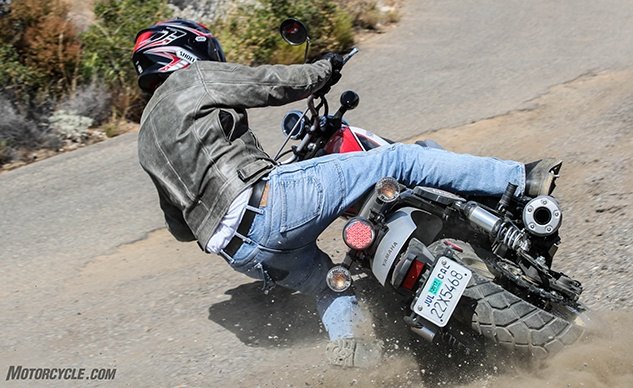
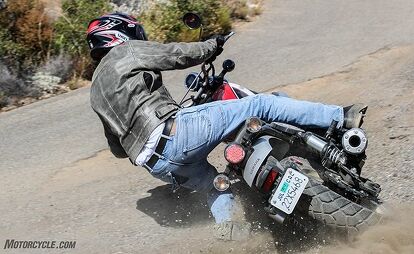










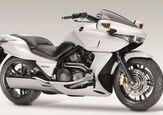

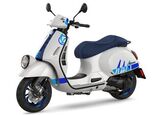


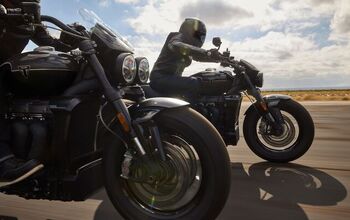


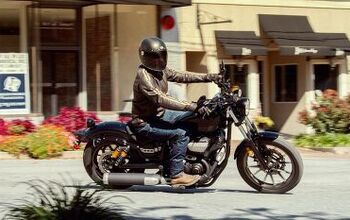
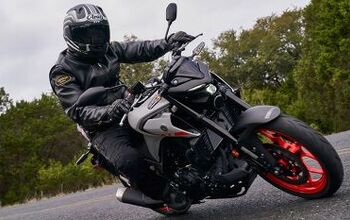
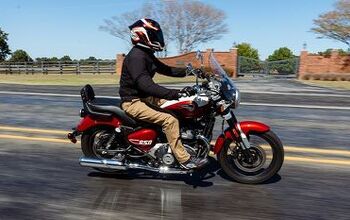


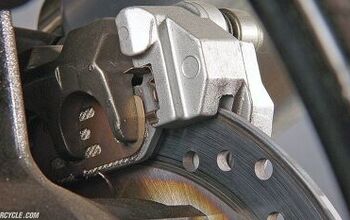
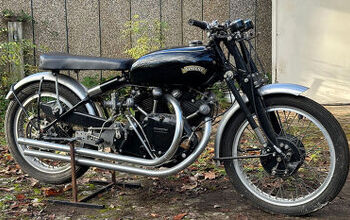







Comments
Join the conversation
This is a very good article JB and far more entertaining that what a lawyer might write. I would add not to talk about the crash with other people except as required. Everyone you talk to becomes a potential witness and they may not remember what you said accurately.
Some good tips, JB, and also from contributors. Except in the aftermath of an accident, it may not be easy to think so clearly. Can't say that practice makes perfect!
In May this year, l was rear-ended while stopped at a busy intersection. If l had been in a car, the damage might have been a scratched bumper. Instead l was flung backwards off my bike, breaking off a brake lever as l did a triple back somersault. I picked myself up and surveyed the damage, which was quite substantial. Then there were people guiding me off the road and an ambulance and cops arrived. What the...who called them? It was only a minor accident. Or so l thought.
The first thing the paras asked me was whether l had lost consciousness. I said No. They said eyewitnesses reported that l had, lying on the road! After they got me into the ambo, they asked me to change into a medical gown. I was shocked to discover that my under shirt was soaking wet, apparently from nervous sweating!
The happy ending was that the insurance company of the guy who hit me coughed up twice the amount of what l privately valued my bike at.
In my homestate, and the rest of Australia as far as l am aware, the driver of the vehicle that rear ends you is automatically deemed to be at fault, unless there are exceptional circumstances. No lawyers involved.
Also, in my homestate, ambulances and hospitals are"free", covered by our road taxes.
Safe riding, the best way to social distance!